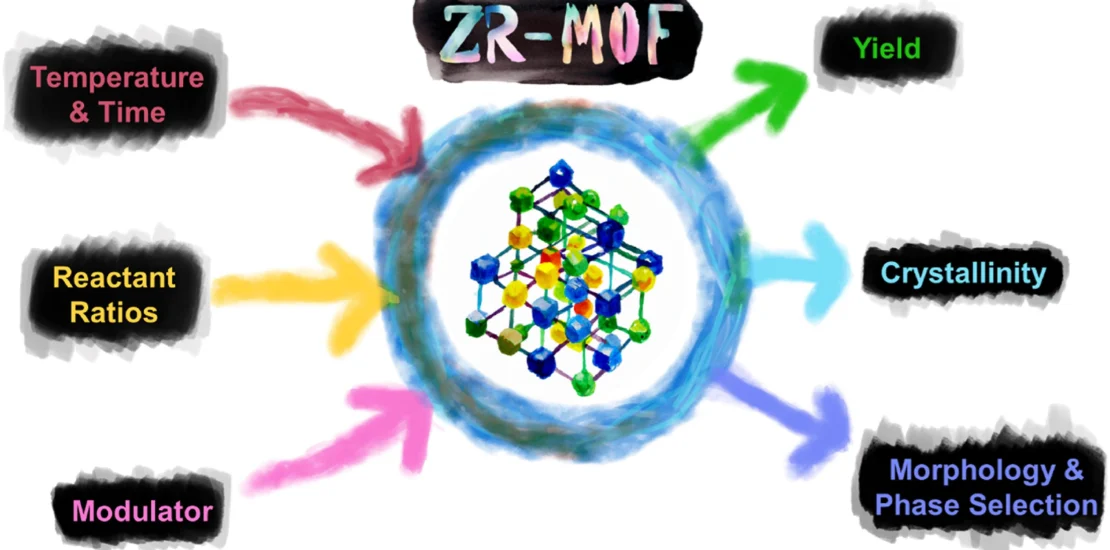- 14 September 2023
- Posted by: nemcatgroup
- Category: Publications

Metal-organic frameworks (MOFs) are a new type of ultra-high surface area porous materials with applications in catalysis, energy storage, and gas adsorption. Compared to other MOFs, Zirconium-based MOFs (Zr-MOFs) demonstrate improved stability due to strong bonds between tetravalent zirconium and carboxylate ligands, making them applicable in real world conditions. This study aims to investigate optimal synthesis conditions for the solvothermal fabrication of Zr-MOFs by looking at two promising tetratopic ligand-based MOFs, Zr-TCPP and Zr-TPTC. By systematically investigating the impact of synthesis parameters on yield, crystallinity, and morphological characteristics, both general and specific trends were determined. The present work demonstrated that the ideal reactant ratio was twice the actual Zr:ligand ratio in the final structure. Stronger acid modulators were found to produce more crystalline samples for MOFs with flexible ligands (Zr-TPTC), where formic acid use resulted in more crystalline samples compared to acetic acid; however, this lowered the yield. The effect of temperature on yield was non-linearly dependent on the reactant ratio used for synthesising flexible Zr-TPTC. For MOFs with rigid ligands (Zr-TCPP), increasing synthesis temperature did not affect yield but decreased crystallite size and improved phase selectivity. Stability tests in water and acid were performed on both MOFs to assess the effect on crystallinity and morphology and the results showed expected trends for Zr-MOFs. The optimized synthesis parameters for Zr-TCPP resulted in a superior method of producing PCN-222 with higher yield and crystallinity. On the other hand, a new Zr-TPTC MOF with high yield and crystallinity was synthesised using the optimized parameters. This study thus elucidates the role of synthesis parameters on Zr-MOF properties and yield and furthers the understanding of MOF synthesis mechanisms, expanding the potential for their applicability in industry.
